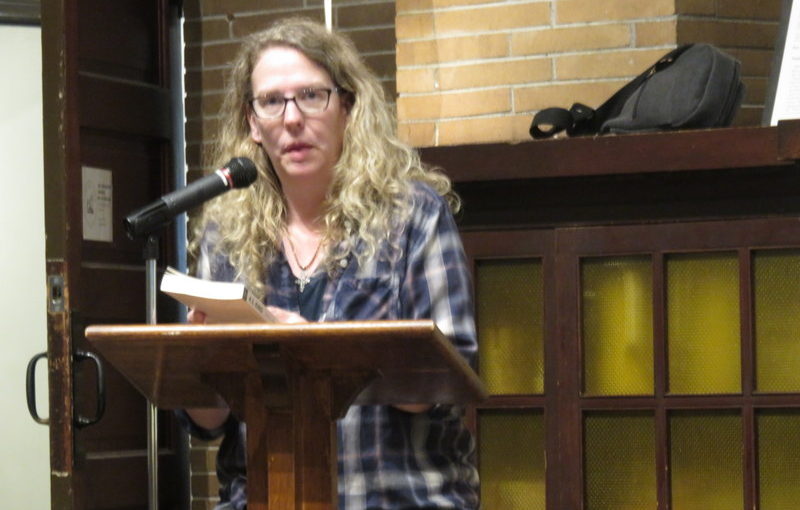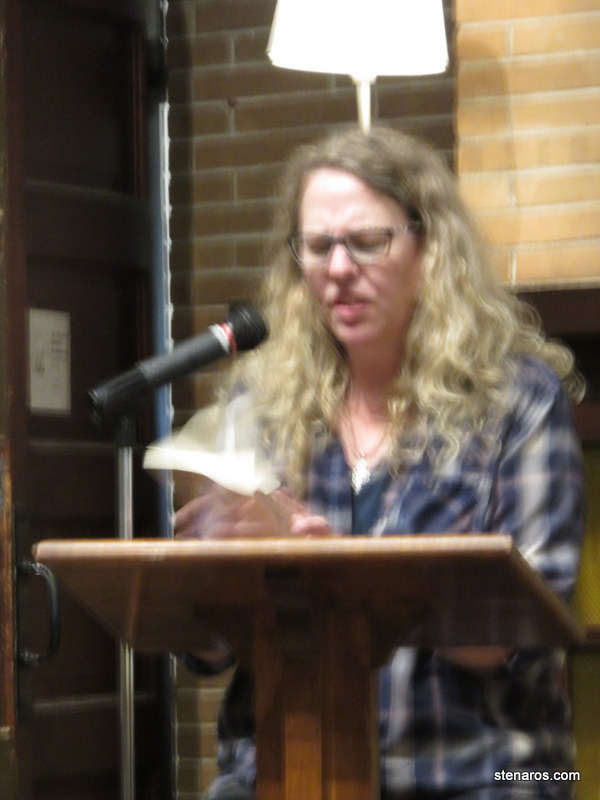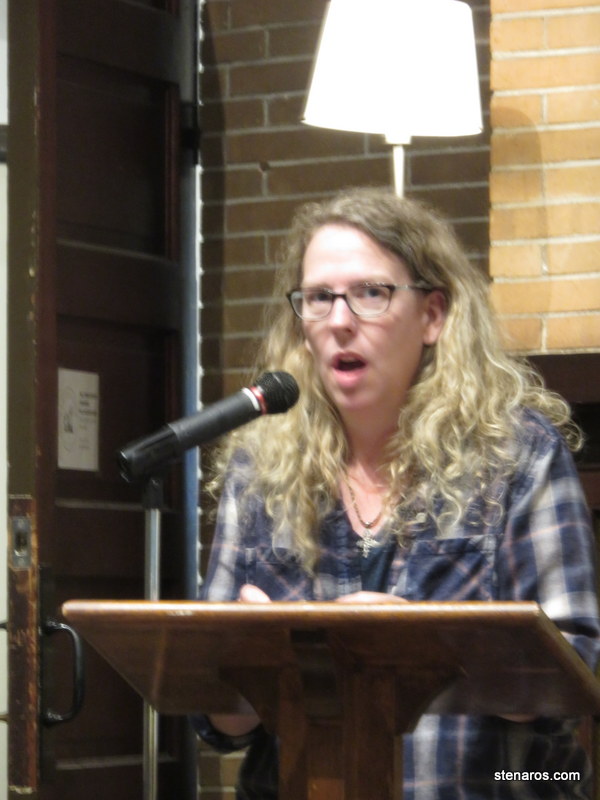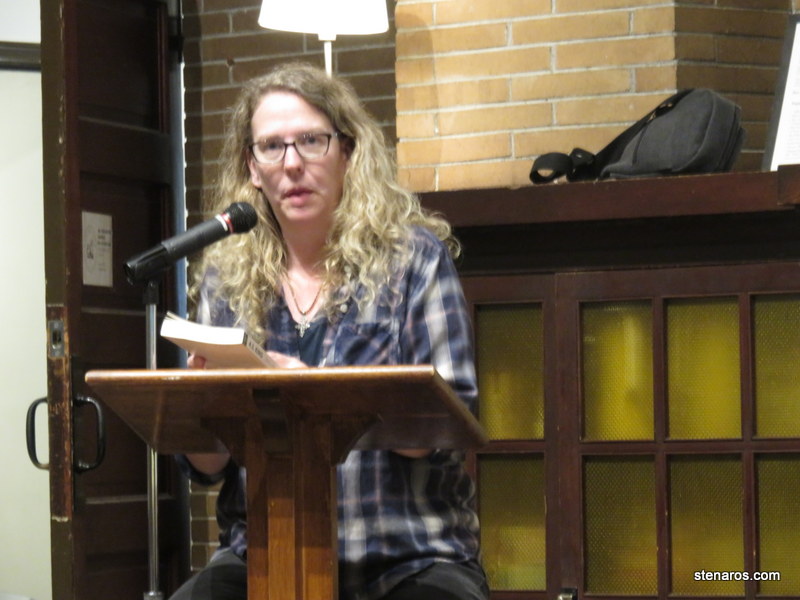Thanks to the Multnomah County Library’s commitment to bringing authors of children’s literature to local audiences, I got to see Alex Gino, author of George and You Don’t Know Everything Jilly P. at the North Portland Library. Gino is non-binary and uses the pronouns they, them, and their.
Things I learned:
Alex prefers to refer to their book George as Melissa’s Story, because George is a name that Melissa would prefer to never hear again. This had me wondering at the process to pick the book’s title.
There were many questions from the audience, which we submitted on index cards. The audience was at least half young people which might be the cause of Alex’s encouragement to write down questions that begin with something besides “what.” (Although my question What is your favorite part about being an author? also began with “what” so perhaps we all needed that encouragement.)
There was a question about navigating the world as a non-binary person and they said that it is hard, but it used to be harder, namely because there wasn’t a term. They were 19 before they found the term genderqueer.
Their next book Rick is coming in 2020 and they wrote it as a companion book to Melissa’s Story. They cited the reason that they did not write a sequel to Melissa’s Story is that for a book to happen, plot would have to happen and that means that bad things would have to happen to Melissa. They are not about having bad things happen to Melissa. Instead, Rick is a story investigating what it means to be so unsure of yourself that you hang out with the bully.
When asked about Melissa’s Story becoming an OBOB Book (Oregon Battle of the Books) they said that they grew up in a world where being queer on purpose around children wasn’t a thing. There were certainly people who were queer around children, but they had to hide that part of them. For their book to be recognized as literature is phenomenal and it gives them hope that things are moving in a good direction.
This led to a story of the signing event that happened on Sunday in Canby, Oregon. Apparently there were 250 people in attendance. The person sitting next to me was in attendance for the Canby signing and said that attendance was so high because Melissa’s Story was excluded from Canby’s OBOB tournament and the Canby Mayor rejected a proclamation honoring International Transgender Day of Visibility. So people of Canby made themselves visible in support of the author.
They ended their talk by saying that they believed that books saved lives and what their hope is for Melissa’s Story is that someday a trans woman will be walking late at night and someone coming toward her might be a very big guy, who is also drunk, and who recognizes this person as trans. And instead of doing what happens to so many trans people now–harassment or assault–that person will think of Melissa and just walk on by and everyone will get home safe.



